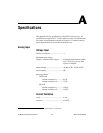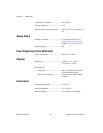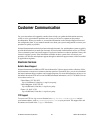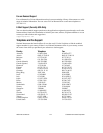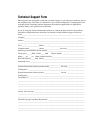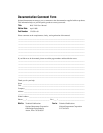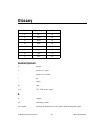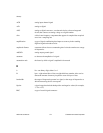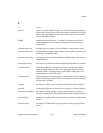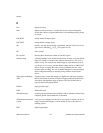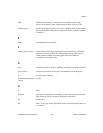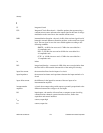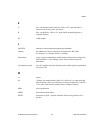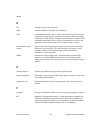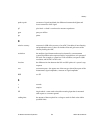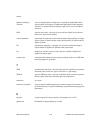
Glossary
©
National Instruments Corporation G-3 BNC-2140 User Manual
C
C Celsius
channel pin or wire lead to which you apply or from which you read the analog or
digital signal. Analog signals can be single-ended or differential. For digital
signals, you group channels to form ports. Ports usually consist of either
four or eight digital channels.
CMRR common-mode rejection ratio—a measure of an instrument’s ability to
reject interference from a common-mode signal, usually expressed in
decibels (dB)
common-mode range the input range over which a circuit can handle a common-mode signal
common-mode signal the mathematical average voltage, relative to the computer’s ground, of the
signals from a differential input
common-mode voltage any voltage present at the instrumentation amplifier inputs with respect to
amplifier ground
compensation range the range of a parameter for which compensating adjustment can be made
conversion device device that transforms a signal from one form to another. For example,
analog-to-digital converters (ADCs) for analog input, digital-to-analog
converters (DACs) for analog output, digital input or output ports, and
counter/timers are conversion devices.
conversion time the time required, in an analog input or output system, from the moment a
channel is interrogated (such as with a read instruction) to the moment that
accurate data is available
coupling the manner in which a signal is connected from one location to another
crosstalk an unwanted signal on one channel due to an input on a different channel
current drive capability the amount of current a digital or analog output channel is capable of
sourcing or sinking while still operating within voltage range specifications
current sinking the ability of a DAQ board to dissipate current for analog or digital output
signals
current sourcing the ability of a DAQ board to supply current for analog or digital output
signals



